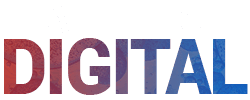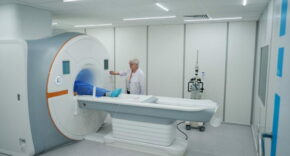
Over a third of healthcare workers expressed concern about safeguarding issues due to language differences
Healthcare workers are seeking quicker solutions on personal mobile phones – at the risk of data security and compliance
Pocketalk is offering free trials to NHS organisations to address the issue
Healthcare staff in the UK are continuing to lose valuable time as language barriers remain disruptive to patient care, impact waiting times and compromise safeguarding.
A new survey has revealed that more than one in 10 healthcare workers face language barriers on a daily basis, with the average time spent addressing these issues amounting to over one hour per week – more than half a working day each month.
The study, conducted by Pocketalk, which has partnered with healthcare organisations across the UK and Ireland to offer a cost-effective, secure, accurate, instant translation solution, tracks the experiences of healthcare professionals bi-annually. The latest figures show that the situation has remained consistent since 2021, with no significant improvement in overcoming language challenges in the UK’s healthcare system.
The research found that language barriers continue to create significant disruption in healthcare settings, causing delays and added stress for both patients and staff. Over a third of healthcare workers expressed concern about safeguarding issues arising from misunderstandings due to language differences, underlining the high stakes involved in clear communication within clinical environments.
Figures also highlighted the need for quicker, instant translations to remove the growing issue of increased wait times due to language barriers. In half of the cases reported, these delays extended from over an hour to more than a week, significantly affecting patient experience and hospital efficiency.
While a third of respondents have turned to Google Translate, which isn’t an approved healthcare translation tool, a further 15% reported using other unapproved translation solutions and almost a quarter (23%) have used their personal mobile phone for translation, which raises concerns about data security and compliance as well as the reliability and accuracy of these methods in critical healthcare settings.
Jess O’Dwyer, Pocketalk General Manager, Europe, says: “These findings highlight a critical challenge for healthcare professionals. In London alone it is estimated that over 300 languages are spoken, including minority languages that aren’t always covered by existing solutions such as human interpreters – which according to the TaxPayers’ Alliance are costing NHS Trusts over £100m every year.”
“Every minute spent resolving language barriers is time lost in providing direct patient care. It’s troubling that healthcare professionals are relying on unapproved solutions, which can compromise patient care and safety with data and information potentially being held on personal mobile phones that aren’t GDPR compliant.”
In the past year, Pocketalk has partnered with both primary and secondary healthcare organisations in the UK and Ireland, including eight GP surgeries managed by The Living Well Partnership.
After using Pocketalk, the network of surgeries in Southampton reported that it has improved communication with its 5,850 non-English-speaking patients. In the real-world validation study between April 2024 and August 2024, in partnership with SCALE Innovation, Pocketalk was used to determine the impact of technology for patients in primary care triage settings.
The research follows the Government’s announcement of a plan to leverage technology and AI tools to streamline public services, eliminate delays through improved data sharing, and reduce costs, including consultant spending.
Dave Barclay, managing partner of the Living Well Partnership, said: “The challenge of non-English language communication for our staff has been made significantly easier by deploying the Pocketalk into our surgeries.
“From supporting staff to registering patients at the front desk, to enabling clear communication in some nursing situations, having access to a handheld device has been a valuable addition.”
The findings emphasise the importance of investing in reliable, secure translation technology and training for healthcare workers to ensure that all patients, regardless of language, receive timely, effective, and accurate care.
Jess concludes: “The need for more translation services has never been more urgent. Proven, safe, and efficient tools need to be as readily accessible as any other healthcare tool used to support and elevate patient care.
“It’s positive that the Government is taking action with the Change NHS initiative but, in today’s world of technological advancement we urge the Government to look at all of the solutions available, cut the red tape and help bridge these communication gaps quickly. This isn’t a one size fits all approach. It’s about blending solutions together to fulfil the needs of communities across the UK. What we’ve seen and what our research shows is that there is a place for human interpreters and also a place for more cost-effective, digitalised, quicker solutions
“Living in a highly diverse country means language translation in healthcare and other sectors such as education, is a necessity – not a consideration.”
Pocketalk is offering free trials to NHS organisations to address the issue. For more information contact matt.steel@pocketalk.com.











